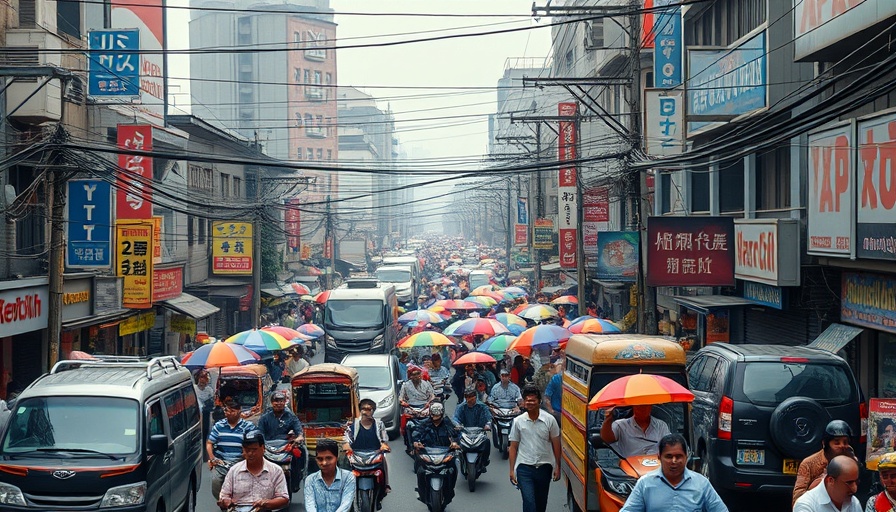
Climate Change's Impact on Asia’s Megacities
The recent report by Climate Central shines a spotlight on the alarming phenomenon of climate-induced warming, particularly in Asia’s megacities. Between December 2024 and February 2025, many of these densely populated urban areas were subjected to extreme heat events, with Manila and Jakarta experiencing significant temperature spikes for nearly 70 days. Such dramatic variations underline the pressing reality of climate change, a topic that demands immediate attention.
Global Temperature Records and their Local Ramifications
According to the World Meteorological Organization (WMO), 2024 was confirmed as the warmest year on record globally, with surface temperatures surpassing pre-industrial levels by 1.55°C. This record-breaking trend illustrates a systematic rise in climate-related emergencies. The implications for urban populations are particularly severe, as high population densities in cities can lead to exacerbated effects of heat and inadequate infrastructure to address these challenges. Urban planners and local governments must prioritize sustainable practices that mitigate these risks.
The Role of Sustainable Development
For cities like Metro Manila and Jakarta, adapting to and mitigating the effects of climate change will necessitate the implementation of sustainable development goals. Strategies include promoting renewable energy sources such as solar power, enhancing public transportation to reduce carbon footprints, and encouraging eco-friendly building designs to combat heat retention. Such initiatives not only create healthier living environments but also align with global efforts to address climate change. Educating citizens about green living practices could further bolster these initiatives.
Understanding the Urban Heat Island Effect
Megacities are particularly vulnerable to the Urban Heat Island (UHI) effect, where urbanization causes temperatures to rise significantly compared to outlying areas. This phenomenon is influenced by various factors such as diminished vegetation, extensive concrete surfaces, and waste heat from vehicles and industries. Designating areas for parks and green spaces, and promoting urban gardening can help counteract these temperature increases. Practical solutions might include the adoption of vertical gardens and green roofs, which not only beautify but also cool city spaces.
Local Actions with Global Implications
Bringing change to a global scale begins at the local level. Community involvement can play a vital role in sustainability initiatives. For example, community gardens can contribute to local food security and biodiversity, while encouraging responsible consumption and waste reduction among residents. As cities develop policies promoting green technology and eco-friendly practices, total reliance on fossil fuels can be decreased, propelling local economies towards sustainable models.
Preparing for Future Heat Events
The implications of persistent climate-induced warming are far-reaching. Not only does it affect health and livelihood in the immediate term, but it also poses long-term challenges to urban planning and infrastructure. Cities must now prepare for increasing heat events, which some experts predict will become more frequent and severe. Recommendations for adaptation include investing in infrastructure that supports extreme weather resilience, such as cooling centers and updated emergency response plans.
Responsible Consumption and Environmentally Conscious Choices
As urban residents, individuals can take steps towards sustainable living through conscious choices in their daily lives. Supporting eco-friendly products, opting for reusable items, and participating in local environmental initiatives can minimize our collective carbon footprint. Personal decisions to adopt practices like composting and reducing plastic consumption can create ripples of change that contribute to broader community resilience against climate change. Collective action amplifies individual efforts, making it a top priority for future generations.
Call to Action: Engage and Advocate for Sustainability
As we face unprecedented climate challenges, it is imperative that each of us takes an active role in advocating for sustainable solutions within our communities. Educate neighbors on environmental conservation, participate in local sustainability initiatives, and support policies that promote green living. By doing so, we can collectively strive toward a more sustainable future, ensuring both present and future generations can thrive in a healthier climate.
 Add Row
Add Row  Add
Add 



Write A Comment